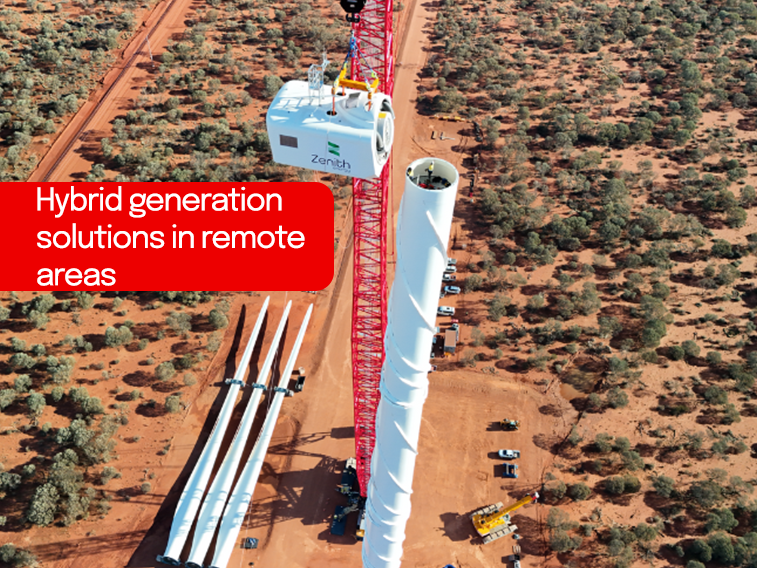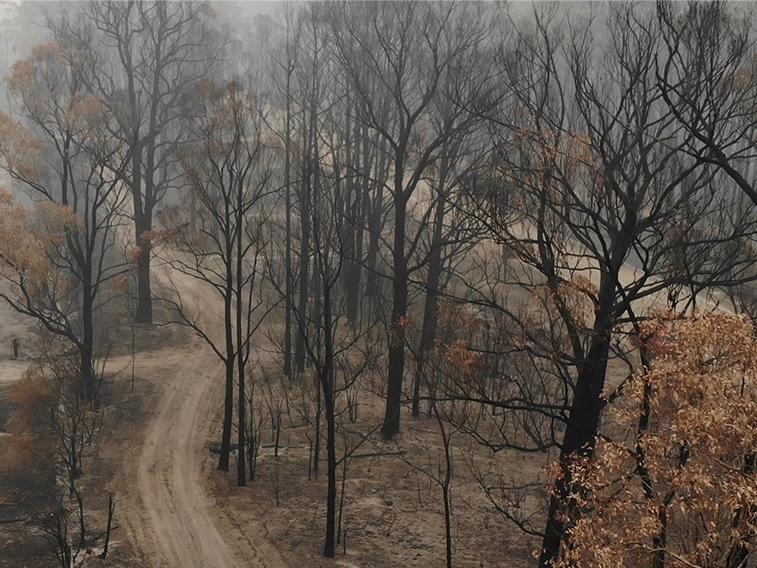Last year was the warmest and driest year on record in Australia, contributing to one of the worst bushfire seasons ever. The southeast has been most severely affected, but fires have hit every state and territory. The bushfires have burned through more than an estimated 11 million hectares (an area the size of England), destroyed thousands of homes and taken many lives.
In Part 2 of this report, NAB explores how over 500 Australian SMEs are responding to climate change, and whether their perceptions have altered since the bushfires. SMEs also share their views on the role of banks in addressing climate change and helping businesses adapt.
Around 7 in 10 SMEs have changed their views on climate change and the environment since the bushfires, and 1 in 2 intend to take stronger action in the future to address it.
The Survey was conducted between 30 January and 11 February 2020.
Key findings
- Business across the globe face increasing climate change risk and NAB’s survey reveals that most SMEs are concerned by this challenge. Around 9 in 10 surveyed businesses expressed some level of concern about climate change and the environment, and over 4 in 10 expressed ‘significant’ concern.
- The NAB survey also reveals that for around 7 in 10 SMEs, their view on climate change and the environment has changed since the recent bushfires, and that nearly 3 in 4 have changed their perceptions about locating a business in a potentially bushfire prone region.
- Just over 4 in 10 SMEs said they have acted to address climate change, although this was higher for SMEs in vulnerable bushfire areas, WA, rural towns and in Agriculture. Moreover, 1 in 2 SMEs said they intend to take stronger action in the future.
- For those planning to act, most aim to reduce waste and plastics use (76%), reduce energy consumption and emissions (65%) and switch to renewable energy sources (55%). They were least likely to engage in collective actions together with industry (33%).
- The bushfires also appear to be playing a role in re-shaping SMEs’ perceptions on the need to do more to address climate change. Overall, 7 in 10 said the fires changed their perceptions to do more in some way.
- But it’s not just the bushfires that are re-shaping their attitudes. Around 7 in 10 SMEs also believe their customers expect their business to address climate change, while 7 in 10 also believe that, in the wake of the bushfires, businesses showing stronger climate leadership will influence customer preferences in some way.
- What to SMEs think they should do? The Survey reveals most believe their customers want them to reduce waste and plastic use, reduce their energy consumption and emissions and switch to renewable energy sources. Not surprisingly, these also line up with the actions SMEs said they intend to take. Interestingly, a lot more SMEs in non-vulnerable bushfire areas thought their customers would value these actions than in vulnerable areas.
- NAB recognises that climate change is a significant risk and a major challenge for the global economy and society, and has made several commitments to help address climate change and support the transition to a low carbon economy. Financial regulators have also acknowledged climate change is a systemic financial risk which they are incorporating into supervisory frameworks.
- But how do SMEs view the role of banks in the climate debate? Around 6 in 10 believe banks have taken some action to address climate change, but 6 in 10 also believe banks should do more (with this number rising to 2 in 3 among SMEs in vulnerable bushfire areas).
- What could banks do to help mitigate climate change and help business adapt? Most SMEs (around 4 in 10) agree banks should increase support to the renewable energy sector, or increase support to restore natural landscapes and forestation, while 3 in 10 think they should increase support to construction of climate change resilient infrastructure.
- In terms of support banks could give to help business respond to climate change, most SME’s (around 4 in 10 overall) wanted banks to offer discounted finance for solar panels and for energy efficiency equipment.
- The recent bushfires are also having an impact on SME perceptions of the need for banks to do more to address climate change, with almost 7 in 10 indicating it had changed their view in some way. Overall perceptions have however changed for noticeably more SMEs in vulnerable bushfire areas than in non-vulnerable areas, and for significantly more SMEs in major capital and regional cities than in rural towns.
- Banks are in a unique position to help businesses impacted by the bushfires. And the Survey reveals clearly that SMEs believe they can help. In fact, only 3% said they didn’t think banks could do anything to help.
- In terms of what banks could do, most SMEs (3 in 10) said they could offer emergency grants to those who have lost their homes, or defer scheduled loans repayments. Around 1 in 4 also said banks could write off loans to the most severely impacted, waive fees & charges and provide loans at reduced rates. Another option that resonated much more strongly for SMEs in vulnerable areas relative to those in non-vulnerable areas was deferring upcoming credit card payments.
For more information, please see the NAB SME Bushfire Impact Survey Part 2


